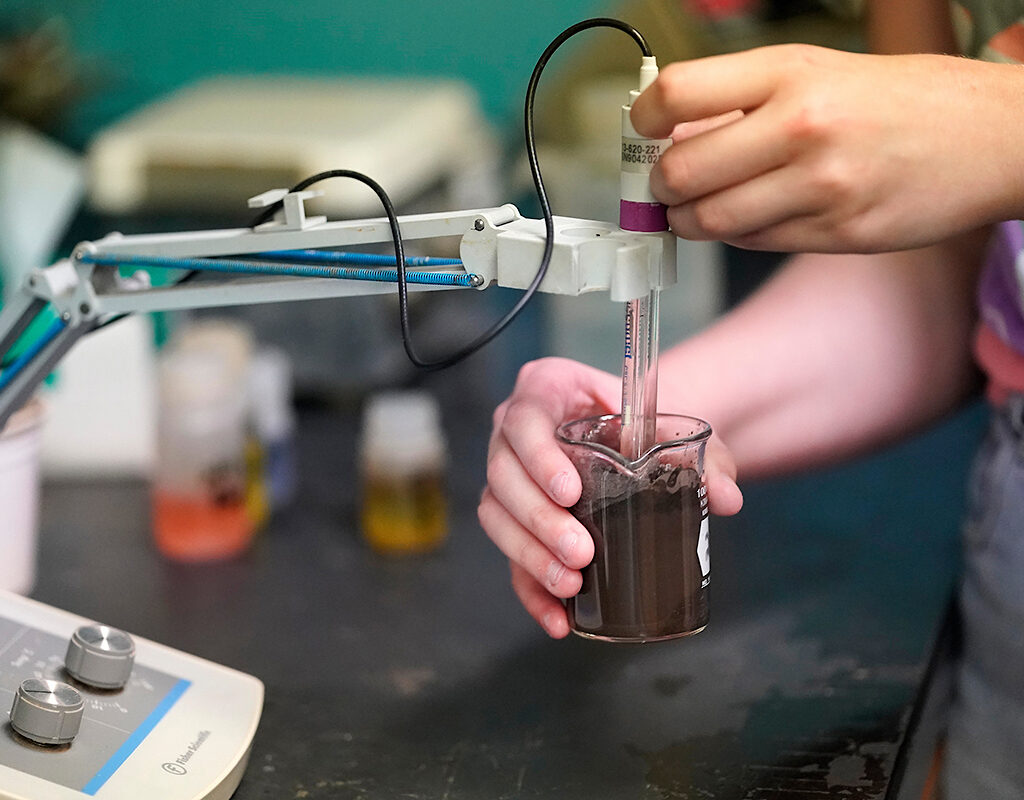Soil Analysis for individual gardeners, homeowners or landscapers
- Type
- Service
- Offered by
- Soil, Water, and Forage Testing Lab

Overview
Contact
2610 F&B Road
College Station, Texas 77845
The Texas AgriLife Extension Service Soil, Water and Forage Testing Laboratory is housed in the Department of Soil and Crop Sciences at Texas A&M University. The laboratory began operations in 1946 primary as a soil testing laboratory. Over the next 34 years, irrigation water testing, plant and forage analysis, and other clientele requested analyses have been added.
The laboratory's primary mission is to provide research based analysis and non-bias recommendations for agronomic and non-agronomic soil analysis, plant tissue analysis, forage nutritive analysis, and non-drinking water analysis. The laboratory also aids the research and extension communities with analysis needs. We also work closely with a number of Texas A&M University service laboratories, other state agency laboratories, and private laboratories with method development, troubleshooting and quality assurance/quality control issues, as well as, forwarding clientele to insure their needs are met.
Need a Texas accredited NELAC laboratory? The Texas Commission on Environmental Quality listing of accredited laboratories can be downloaded here: Accredited Laboratory List (DOCX).
More choices in Crops & Produce
- Course
Those who participate in this course will learn about herbicides, different modes of action, and different herbicide families. Pesticide applicators looking to receive 1 hour of credit for TDA pesticide general CEU can be earned with this course.
- Course
Prepare to take the Private Pesticide Applicator Exam administered by the Texas Department of Agriculture with this course designed for pesticide applicators in Texas. Private pesticide applicators use or supervise the use of restricted-use or state-limited-use pesticides or herbicides to produce an agricultural commodity.
- Course
This course provides two CEUs to TDA agricultural applicators. Aerial applicators will receive the required credits for drift minimization and safety addressing human factors. All TDA applicators who complete the course will gain knowledge of spray drift minimization as well as pesticide safety.
- Course
This Picolinic Acid Chemistry Training covers the application requirements for the use of Invora™ herbicide for brush and weed management on rangeland sites in Arizona, New Mexico, Oklahoma, and Texas.
- Course
This course is for Texas Department of Agriculture Pesticide Applicators seeking TDA continuing education units (CEUs). This course provides 1- Drift Minimization CEU. Applicators who complete the course will gain knowledge of the factors affecting pesticide drift, such as inversion, spray nozzles, and drift factors.
- Publication
Considering a carbon program? Learn what questions to ask before you commit. Use this free guide to better manage legal, market, and production risks. Download your copy today!
